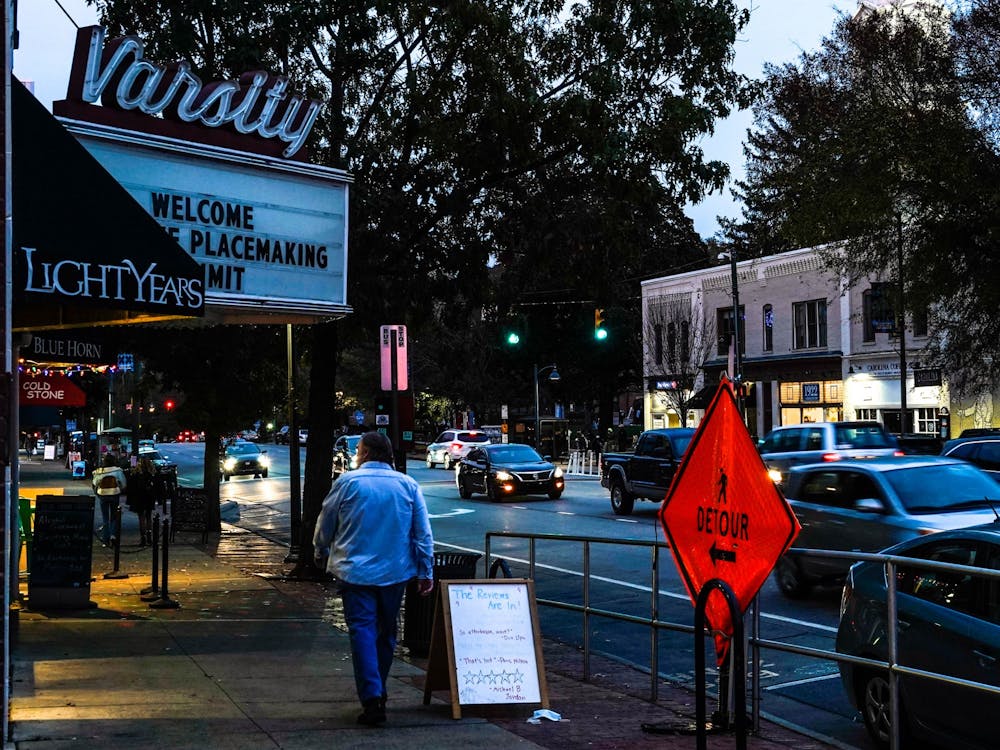I walk down Franklin Street a lot — like the entire length of it — at least once or twice a day. As a result, I know it pretty well. I also know what it’s like to almost get run over by lunatics driving out of the Chipotle parking lot at 30 miles per hour. So, this is a plea to those who drive on Franklin like it's I-40 — I want to survive walking home.
Please, slow down. Thank you.
Over the last two years, the Town of Chapel Hill has been making some changes to the street and has installed a walkway (which violated the Americans with Disabilities Act, which should not surprise you). Additionally, the Town had the entire street resurfaced by the N.C. Department of Transportation and added curb-running bike lanes.
These are good. I will say that there are some problems with curb-running bike lanes as they tend to be dangerous for bikers. The safest bike lanes are physically raised above the street surface, which protects them from cars.
This is one of the reasons why Chapel Hill released a presentation and survey asking for residents' advice on what they should do with Franklin Street moving forward. Those can be found here and here.
Now, if you’re not a massive nerd, don't worry. I have you covered.
There are six options, some require transferring street maintenance from NCDOT to the Town. I think this is a good idea, but first, let's run through the plans that don’t require maintenance transfer.
The first is to actually roll back the design of Franklin Street to the pre-COVID-19 design, removing biking and pedestrian quality-of-life changes. This would make it marginally faster to drive through Franklin while making life worse for literally everyone else. Bad idea.
The other one which wouldn’t require maintenance transfer is to keep Franklin the way it is right now. Which is to say, good, but could be better.



